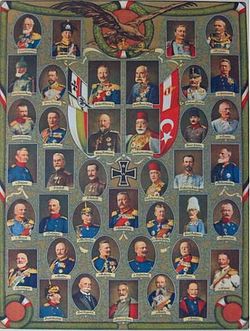This article needs additional citations for verification .(November 2018) |


The leaders of the Central Powers of World War I were the political or military figures who commanded or supported the Central Powers .
This article needs additional citations for verification .(November 2018) |


The leaders of the Central Powers of World War I were the political or military figures who commanded or supported the Central Powers .